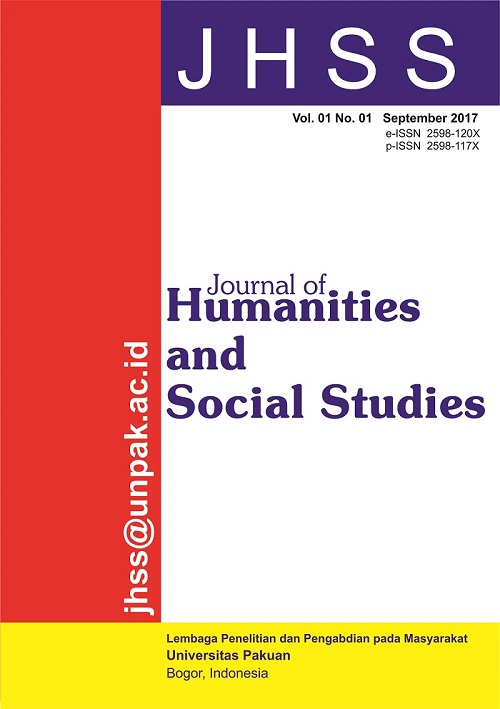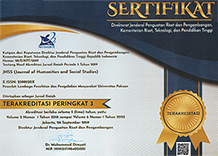JHSS (JOURNAL OF HUMANITIES AND SOCIAL STUDIES)
Vol 8, No 3 (2024): JHSS (Journal of Humanities and Social Studies)
JHSS (Journal of Humanities and Social Studies), Volume 08, Number 03 2024. in progress
This journal is published three times a year, well documented in the form of books, which include a variety of humanities and social studies papers by writers of various backgrounds.
Articles

Welcome to Journal of Humanities and Social Studies, ACCREDITED by SINTA 3. Journal of Humanities and Social Studies is a journal that publishes scientific papers in the field of humanities and social studies. This Journal, run by Lembaga Penelitian dan Pengabdian Pada Masyarakat, Universitas Pakuan, Bogor. The Journal provides opportunities for scholars to submit papers in humanities and social studies, and also management policies related to education, teaching, and learning fields which will be published online. The internet connection will add to the richness of information and scientific knowledge derived mainly from research. This journal is published three times a year, well documented in the form of books, which include a variety of humanities and social studies papers by writers of various backgrounds. In addition, we also have partners from local editor who graduated as profesor from some university who will review each article before publication. Each article or paper published in this Journal will definitely be useful to all visitors and readers.
Articles submitted to this journal will be reviewed by reviewers before publication by double blind-review. e-ISSN: 2598-120X and p-ISSN : 2598-117X
All articles published in JHSS has been indexed in:
 |  |  |  |  |
 |  |  |  |


















